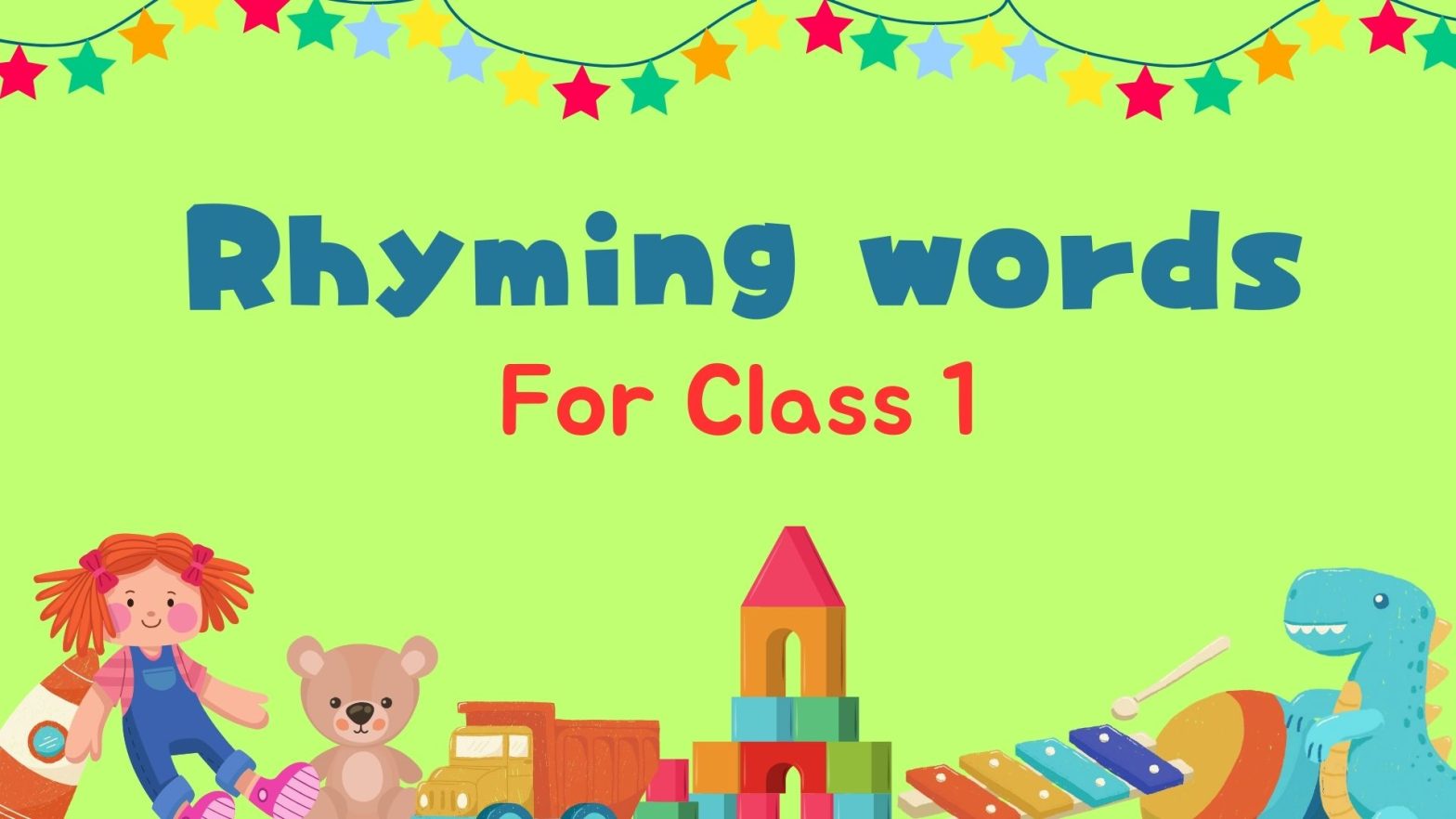
Remember the nursery rhyme Humpty Dumpty? As kids, we all have learned and presented the rhyme as it was our introduction to poetry. The rhyme has several similar-sounding words; Humpty and Dumpty, Wall and Fall, Men and Again, and so on.
These are rhyming words. We often hear and use rhyming words in poetry, rhymes, and stories. Not only do they make them interesting, but also play a big role in helping children grasp English.
In this article, we will explore how rhyming words help children learn a non-phonetic language like English. We will also share a list of rhyming words for class 1 and some more complex versions of the same.
Rhyming words are the words that sound similar. These words have the indistinguishable ending sounds. Children are introduced to rhyming words through rhymes and they contribute to building vocabulary and verbal skills and also help children to memorize sentences easily.
When children sing songs or rhymes with rhyming words, they imbibe the sounds of the words which helps in building their speech skills. Children often get confused when learning a non-phonetic language. With rhyming words, children learn to recognize the sounds followed by the pronunciation. It enhances their phonemic awareness and helps them in their language-learning journey.
We have curated a list of simple words that rhyme. Here it is:
| All | Call |
| Ball | Tall |
| Cat | Hat |
| Fat | Pat |
| Mat | Rat |
| Had | Mad |
| Sad | Dad |
| Add | Bad |
| Pad | Lad |
| Map | Cap |
| Lap | Rap |
| Tap | Slap |
| Gap | Nap |
| Ran | Can |
| Pan | Tan |
| Man | Van |
| Cry | Dry |
| Why | Shy |
| Ten | Men |
| Hen | Pen |
| When | Then |
| Sit | Bit |
| Fit | Kit |
| Bit | Lit |
| Wit | Pit |
| Big | Dig |
| Fig | Rig |
| Win | Pin |
| Kin | Fin |
| Tin | Sin |
| Bin | Chin |
| Inn | Shin |
| Mare | Hare |
| Care | Share |
| Bell | Shell |
| Tale | Male |
| Beach | Teach |
| Peach | Each |
| Cop | Mop |
| Hot | Pot |
| Lot | Cot |
| Top | Shop |
| Lie | Pie |
| Case | Base |
| Race | Chase |
| Face | Lace |
| Eat | Cheat |
| Meet | Sheet |
| Gift | Rift |
| Shift | Lift |
| Less | Mess |
| Best | Test |
| West | Jest |
| Late | Fate |
| Rate | Mate |
| Plate | Slate |
| Bun | Nun |
| Sun | Fun |
| Cub | Dub |
| Nice | Dice |
| Lip | Zip |
| Dip | Clip |
| Sick | Lick |
| Said | Maid |
In some cases rhyming words end with the same spelling, but in some cases, they end with different spellings. Here are some examples of rhyming words that end with different spellings:
| Bare | Fair |
| Bore | Door |
| Four | More |
| Seed | Bead |
| Read | Feed |
| Boat | Float |
| Chair | Stare |
Two-syllable rhyming words are more complex words, and hence, taught in higher grades. Here are some examples of two-syllable rhyming words:
| Liver | River |
| Feather | Weather |
| Candle | Scandal |
| Shower | Flower |
| Swollen | Pollen |
| Shiver | Never |
| Donkey | Monkey |
| Father | Mother |
| Better | Letter |
| Baker | Shaker |
| Funny | Sunny |
| Honey | Money |
| Permit | Outwit |
Rhyming words in English help children in their early learning years. They introduce children to this non-phonetic language in a fun and interesting way.
It is important to teach rhyming words to children because they make English easy to grasp by creating a flow in the sentence.
Sentences with simple words that rhyme are easy to memorize. It helps kids to explore new words and build their vocabulary. Moreover, rhyming words make sentences interesting. They make learning a fun process.